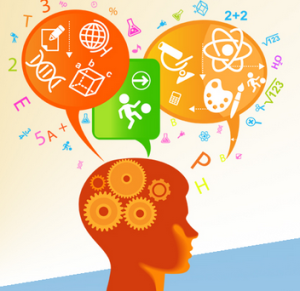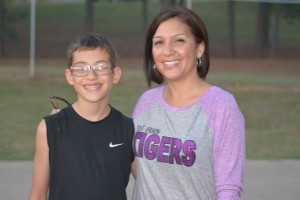
Bookshare serves many members who have a severe reading disability, like dyslexia, that makes it difficult to comprehend what they read in standard print. Persons with dyslexia cannot easily recognize words and letter sounds. They may be slow readers and poor spellers because signals to their brain mix up the ability to accurately decode print.
The International Dyslexia Association (IDA) reports that 1 in 10 people have symptoms of dyslexia, and half of all students who qualify for special education in U.S. schools are classified with a learning disability. Thankfully, there are many people who have benefited from digital accessible books paired with assistive technology.
Did you know that Bookshare is the world’s largest online accessible library of copyrighted content for people with print disabilities? Yes, and it is offered at no cost to qualified U.S. students and schools. As a member of Bookshare, you can tap into a world of more than 300,000 titles for education and pleasure reading and hear the ebooks read aloud using text-to-speech (TTS) technology. October is National Dyslexia Awareness Month, and we want to share with you two short stories from Bookshare moms about their sons’ efforts to succeed academically.
Bookshare Moms Share Sons’ Reading Success

Michelle Reeves says, “My son, Reagan was 8 years old when he was diagnosed with dyslexia. He struggled in school and didn’t like to read. His eyes would tire while reading print, and he fell behind in his schoolwork. As a Texas teacher, I found out about Bookshare through our school. Today, my happy 8th grader listens to accessible ebooks read aloud on portable technology devices. He downloads ebooks on his iPhone by himself and uses an iPad Mini to read with an app called Read2Go. He even reads for pleasure! Last year, he downloaded and read over 200 digital books and received an award for having accumulated the most Accelerated Reader points in his class. Bravo!”
A California mom and school counselor also shared her pride with us when her seventh grader passed his Accelerated Reading tests with a 100% for comprehension. “He’s doing well reading with accessible books. Using reading technology, he can see highlighted words and hear text read aloud. He can choose font size, background colors, and rate of speed. He’s even given up video games and sets his alarm to wake up early to read before school. Amazing!”
A big thanks to these parents for their inspirational stories and to all parents who continue to share resources and information likes the ones we list below.
Parent-founded organizations, like Parents Education Network and Decoding Dyslexia, advocate for mandatory teacher training for dyslexia.
Parent technical and information centers, such as Parents Helping Parents in California and the Simon Technology Center in Minnesota, offer opportunities to try different types of accessible technology tools and work directly with schools to find the right support for students.
Learning Ally and Bookshare offer accessible books that work with many reading tools.
Books by expert authors, like Ben Foss, The Dyslexia Empowerment Plan, Susan Barton, Bright Solutions for Dyslexia, and David Flink, Thinking Differently, provide a wealth of information.
Additionally, check out these fine organizations for resources, strategies, and support and stay tuned for our blog about the launch of the new Understood website designed for parents of children with learning and attention issues.
- 2Dual Inc
- Decoding Dyslexia—Parent Network
- Dyslexia Training Institute
- International Dyslexia Association
- Learning Disabilities Association of America
- National Center on Learning Disabilities
- Parents Helping Parents
- Project Eye to Eye
- Susan Barton System
- The Assistive Technology International Association
- The Center of Applied Technology
- The Family Center on Technology and Disabilities
- Yale Center for Dyslexia & Creativity

Be First to Comment